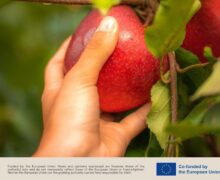SE Asia collaborates to rebuild business events sector

As countries cautiously begin to reopen borders, business events associations in South-east Asia have come together to spur the recovery of the region’s meetings and events sector.
Sharing protocols for the safe reopening of events, exchanging advocacy tactics, and building resilience in South-east Asia is the focus of ongoing talks between trade associations in Singapore, Thailand, Malaysia, the Philippines, and Indonesia.
“A rising tide lifts all boats,” said Aloysius Arlando, president of the Singapore Association of Convention & Exhibition Organisers & Suppliers (SACEOS), which is leading the charge to strengthen regional cooperation.
“A strong industry fraternity exists within South-east Asia, but the domestic situation in each market differs considerably,” Arlando explained.
He added that SACEOS is working closely with local government agencies to define a safe operating environment, and help guide Singapore’s industry towards a safe transition.
“We are sharing our plans with our South-east Asian neighbours, including learnings from our recent advocacy efforts, to ensure we remain resilient and emerge stronger in a post-Covid world,” he added.
SACEOS also spearheaded the Asia Community Building Pledge, which was signed at SMF 2019 by TICA (Thailand Incentive and Convention Association), TEA (Thai Exhibition Association), MACEOS (Malaysian Association of Convention and Exhibition Organisers and Suppliers), PACEOS (Philippine Association of Convention/Exhibition Organizers and Suppliers), and ASPERAPI/ IECA (Indonesian Exhibition Companies Association).
TICA president, Sumate Sudasna, said collaboration between trade association leaders has been fruitful, with talks of a regional travel bubble underway.
“We have pledged to maintain communication through the crisis and have indeed learnt from each other,” he said.
“I believe South-east Asia can definitely work together to emphasise our connectivity and complementary attributes, and to be recognised as a safe and hospitable region for MICE.”
Sharing knowledge is the first step towards regional recovery, but hurdles to effective cooperation remain.
Octavio B. Peralta, founder and CEO of the Philippine Council of Associations and Association Executives (PCAAE), said collaborative efforts similar to the recent agreement between BECA and CINZ will prove difficult as the pandemic has affected South-east Asian countries in different ways.
“Factors like government policies on health protocols, immigration rules, the opening of the economy, as well as incentive support for the MICE industry, differ from country to country,” he said.
“In the Philippines, for example, business and association events will be largely organised and held locally to rebuild confidence, before attracting international events.”
Malaysia is also taking an ‘inside-out’ approach. The Business Events Council of Malaysia is working with government and industry to support a Let’s Meet Locally campaign, which will include a second phase, Let’s Meet Tomorrow, to help revive regional market demand.
MACEOS, meanwhile, is collaborating with local associations to standardise event protocols and contact tracing across Malaysia, while sharing best practice with regional neighbours.
“Each and every respective country needs to address control measures and public confidence first, and thereafter, cross-border initiatives can be taken,” remarked MACEOS president Vincent Lim.
“Overall, strong government support is needed to revive the industry beyond (the establishment of) a travel bubble,” he added.
The ASEAN Tourism Association (ASEANTA) will be hosting the New Normal in Tourism and Creating Travel Bubble webinar on June 25, which may provide clarity on regional cooperation efforts to revive travel, tourism and business events.
source: ttgmice




